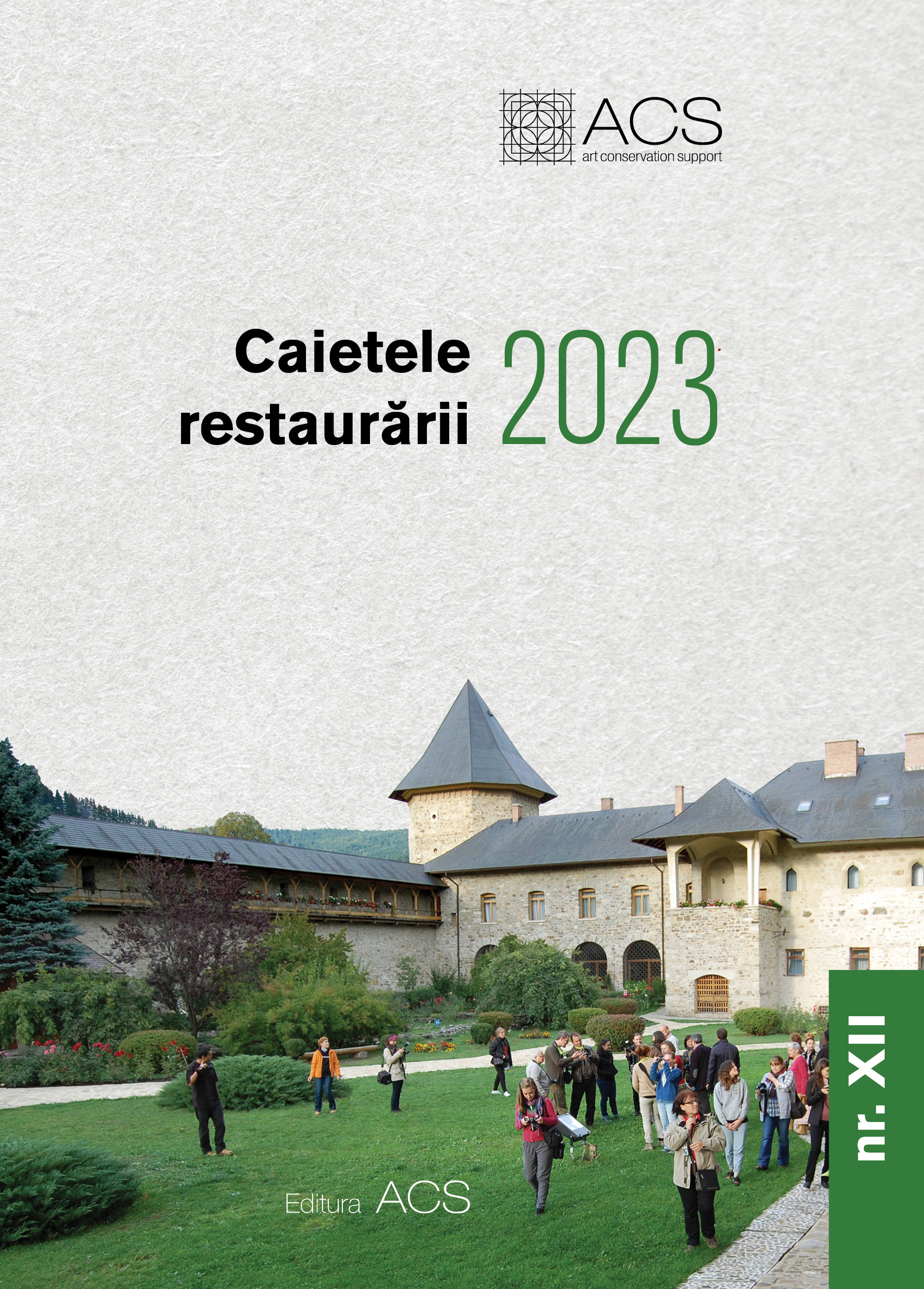
We kindly inform you that, as long as the subject affiliation of our 300.000+ articles is in progress, you might get unsufficient or no results on your third level or second level search. In this case, please broaden your search criteria.

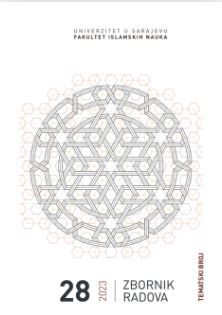
In this essay, the author recalls the debates on the introduction of religious education in schools during the period 1992-1996. All discussions reminisced here took place in besieged Sarajevo. Despite the challenging circumstances, the debates exuded a free approach to the role of religious education and its treatment within the educational system. Participants in these discussions either rejected or embraced religious education. Some wanted to introduce it into schools under a different name, while others aimed to create an entirely new and “more modern” subject that would replace religious education while simultaneously fulfilling its role in education. Meanwhile, some advocated for infusing other subjects with the spirit of religious education and a positive attitude toward religion.
More...
This paper offers a concise overview of significant activities by the Religious Education Service that contributed to the positioning and stabilization of Islamic religious education as an elective subject in schools from 1999 to 2013. It primarily addresses the enactment of legal regulations governing the status of religious education in the education system, followed by the development of the curriculum and textbooks for Islamic religious education. The legislative process on this matter was relatively slow, taking almost ten years from the introduction of religious education in schools to obtaining a quality legal solution at the state level. Implementation across Bosnia and Herzegovina took several more years. The adoption of legal provisions on religious education at all levels created the conditions for the development and adoption of new curricula and a new generation of textbooks. The processes were entered with significant ten years of experience in implementing religious education, which served as a solid basis for the improved quality of both the curriculum and textbooks.
More...
This paper presents the status of the subject of Religious Education in Sarajevo Canton through a chronological perspective of its introduction and gradual establishment in the educational system as an elective i.e., compulsory subject, with the grade counting towards the overall success of students. Over 80% of students attend this course. Since its introduction in 1991, a constant progression is visible in the number of students, the legal status of the subject, the professional representation of teachers, as well as in the quality of instruction, textbooks, and the overall reputation of the course of Religious Education in the educational system. Religious Education achieves the set goals of religious up-bringing and education of school generations, contributing to the development of spiritually strong and emotionally stable individuals capable of further growth and constructive engagement in societal trends.
More...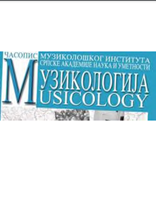
The introductory section of this article comprises a condensed retrospection of previous researches in Serbian music between the two world wars. Basic problems faced by contemporary Serbian musicology have been pointed out. These include: incomplete bibliography, absence of monographic publications, general historic surveys, and system¬atic typological studies. Such a situation resulted from a scries of organizational difficul¬ties that, from the very beginnings of our musicology, accompanied the researchers' work. A section of the article pays attention to current problems of scientific personnel. The stale of material is also one of the essential problems. Unfortunately, the situation regarding finding, recording and expert and bibliographical treatment as well as publishing various material is still an important obstacle for a systematic scientific treat¬ment. historical surveys, analytical and critical evaluation of general tendencies of the period. Composing a single data bank of institutions and private collections where mate¬rial is conserved, as well as publishing scores and sound archives, are the first steps to be made in our musicology towards modern methodological views on the period of Serbian music between the two world wars. In the section Thematic Fields the author emphasizes the importance of contex¬tual studies of the musical heritage as a part of Serbian and European musical and cultural life It has been noticed that musicological views tend to focus on Belgrade with very little work dedicated to dominant music trends and phenomena in other parts of Serbia. Also discussed are problems contained in the notion of Serbian music between two wars. It has been pointed out that certain problems arise when in interpreting evolu¬tionary art trends we try to strictly connect them with lime limits provided by historical events. In the 20th century, Serbian history has recorded al least four wars, so it has been proposed to adopt in the future musicological practice, the expression ‘between two world wars" instead of the term "between the wars". When examining the problem of defining Serbian music in national terms, we find that the previous musicological practice was correct in regarding non-Serbian composers and musicians as well as Serbian authors whose careers were developed abroad as belonging to the same corpus. Il has been sug¬gested that future researchers should make comparative investigations of the activities of Serbian authors in the specific contexts of the ethnic cultures within which they worked during the period. Taking into consideration the tragic events of the recent political his¬tory in the former SFRY. it has been pointed out that especially provocative terms Yugo¬slav and Yugoslav national music as a unique notion, are bound to be revised. Modem comparative research also demands evaluation of the term music itself that ranges from the purely artistic (high-culture) to border-line, subcultural fields. In (his way, by studying the phenomenon of the trivial art, the knowledge on Serbian musical culture between two world wars would be considerably expanded. This would also enable a Imai delineation between the art-music corpus and the non-artistic genres corpus in historical writings. Without aspiring to complete the list, the Conclusion points to some insuffi¬ciently researched fields (e.g. sacred music) and current musicological (the problem of dominant and side trends) and terminological problems (including stylistic attributes and questions of musical realism).
More...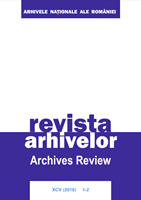
Constantin Anghelescu was a complex personality of the Interwar period, who was especially noticed for his tact and perseverance, which helped him to unify and modernize the Romanian educational system after the Unification of 1918. His higher education in Paris provided him a high-class training in the field of Medicine, as his activity as university professor represented a guarantee for the education of the future physicians. Also, The professionalism he provided in the field of politics also recommended him as a model for the future generations. As Minister of the Public Instruction in the liberal governments between the two world wars, Constantin Anghelescu started a wide campaign of building locations for primary schools, which generated occasions for work visits in which he assessed the progress of the construction works and inaugurated new education buildings. Thereby, we can explain the visit of the famous surgeon and politician in Târgu-Neamț and some nearby villages in the autumn of 1923. The archive documents and photographs helped to reconstruct this local history page, and the presence of the schoolmaster Leon Mrejeriu alongside Minister Anghelescu confirms us that the teacher from Neamț told him about the problems of the local schools, as he also held several functions in the Parliament of the Greater Romania.
More...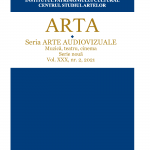
The article describes the methodological and scientific works of the Special Piano department teachers from the Chisinau State Conservatory, created in the period 1950–1970s. The most common type of unpublished articles are reviews of colleagues’ concerts, reports, abstracts, essays and musical collections. The most serious scientific plans of the teachers were related to the genre of the dissertation. In the 1960s. the scientific and methodological articles of teachers of the department of Special Piano begin to appear. The most significant part of them is formed by music collections, composed of the music of Moldovan composers. T. Voitsekhovskaya and A. Dailis compiled and edited musical aids for students of different ages. The uniqueness of these scientific and methodological opuses is due to the specifics of the material under study – the subject of a special piano, the subtleties of which are familiar to authors, pianists-teachers and performers from their direct professional activities. The named scientific publications opened the way for further research of pianists, who became especially numerous at the turn of the XX–XXI centuries.
More...
Despite the fact that today there is a fairly comprehensive material on the architecture of Western Europe in the 18th century and a significant amount of research conducted regarding the outstanding architects of that time. There is not a lot of information available regarding the formation of architectural education in Germany, as a system of educational institutions, or at least this information has not been synthesized to give a clear picture of the processes that took place in this timeframe. The main aim of this article is to outline a complete chronological picture of the events that took place and to enable the reader to trace the challenging path of the development of architecture from a craft to the academic discipline. Given the turbulent political processes in eighteenth-century Europe, particularly in Germany, the article highlights some political developments which, in turn, had a huge impact on the development of culture, education and social life in the country. The main achievement of the 18th century in the field of education was the introduction of a compulsory state examination to obtain a certificate of higher education. A mandatory special training requirement for construction majors was also introduced. During this period, several textbooks were developed and published. The academies were actively gaining and consolidating their influence in both in education and science. The first debates about the importance of art and science in the training of architects appeared at this time, which is up-to-date in contemporary debates as well.
More...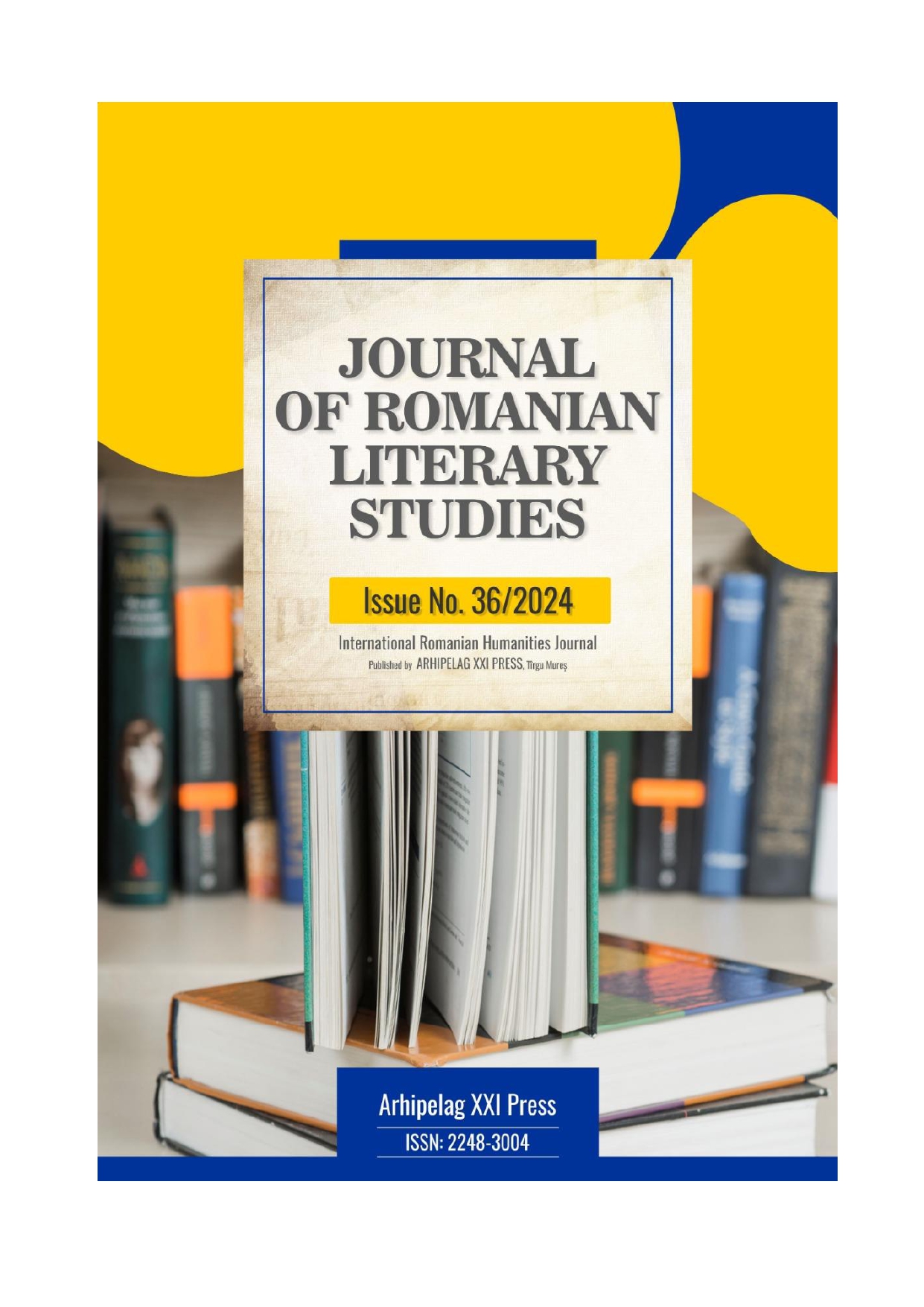
The union of the Principalities through the double election of Alexandru Ioan Cuza (1859) represented the foundation of the modern Romanian state and was followed by numerous legislative initiatives aimed at ensuring full unification, among them a new education law, namely the Law of Public Instruction. The new law was promulgated by the ruler on November 25, 1864 and represented the brick that was the basis of the construction of the modern Romanian education system. Since the beginning of the reign of Al. I. Cuza, the problem of the education system, its organization on modern and unitary principles was a priority not only of the ruler, but also of the politicians around him. That is why the Law of Instruction (1864) was the result of the long-term work of numerous political and cultural people, but nevertheless caused, from the beginning, two great controversies regarding its content as well as the context in which the normative act was developed. The first of these controversies was related to the wider circumstances of the adoption of foreign models in the Romanian society, and the second referred to the short time in which the new education law was drafted (June-November 1864). The adoption of the foreign models in the Romanian society was a problem that referred not only to education, but also to other fields, being one of the ways through which the modernization of the Romanian society was achieved. The Law of Instruction from 1864 represented a synthesis of the principles included in the Romanian political projects developed at the end of the 18th century and in the first half of the 19th century, but also of some principles taken from the Western models, all adapted to the realities of the Romanian society from the second half of the 19th century, a society in constant change especially after the Union of the Romanian Principalities in 1859. More than that, this law was the fruit of solid concepts and principles and that is why it lasted a long period of time, despite all the appeals and attempts of abolishment that have existed.
More...
After the 1973 Party Decision on physical education in schools, the physical education system in Romania underwent significant changes, with an emphasis on promoting health and regular physical activity among students. The party decision of 1973 had as its main purpose the promotion of physical activity and sports among students as an integral part of their education. This document emphasized the importance of physical education in the formation of a healthy individual and encouraged its integration into the school curriculum. The physical education lesson was reinforced as an essential part of the school curriculum. Pupils had regular physical education lessons in schools with a focus on developing physical skills, team spirit and promoting an active and healthy lifestyle. Physical education was seen as a way to attract students to different sports activities and to promote talent and interest in sports. Schools have encouraged students to participate in school, inter-school and national sports competitions so that they discover and develop their sports skills. School camps were another opportunity to promote physical activity and sports. During the camps, sports activities were organized to provide students with a variety of outdoor experiences and to encourage social interaction and team spirit.
More...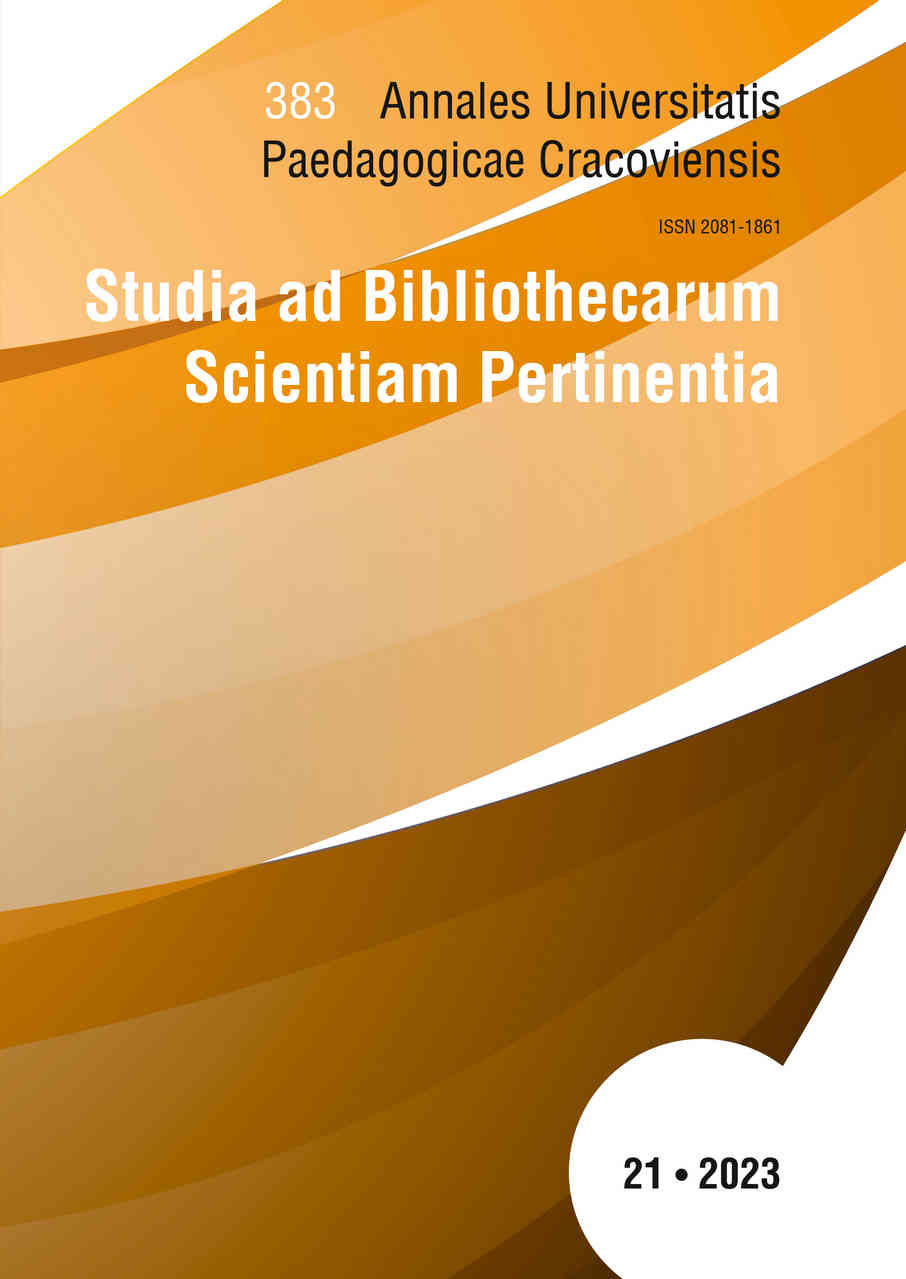
The article deals with issues related to the formation of book collections of libraries of technical universities founded after the end of World War II, i.e., Gdansk University of Technology, Wroclaw University of Technology, Lodz University of Technology, and Silesian University of Technology. The histories of the establishment and roots of these universities were briefly discussed, as well as the first steps towards the organization of libraries. Methods of completing book collections, and organizational challenges (location, staffing, as well as methodological) are presented.
More...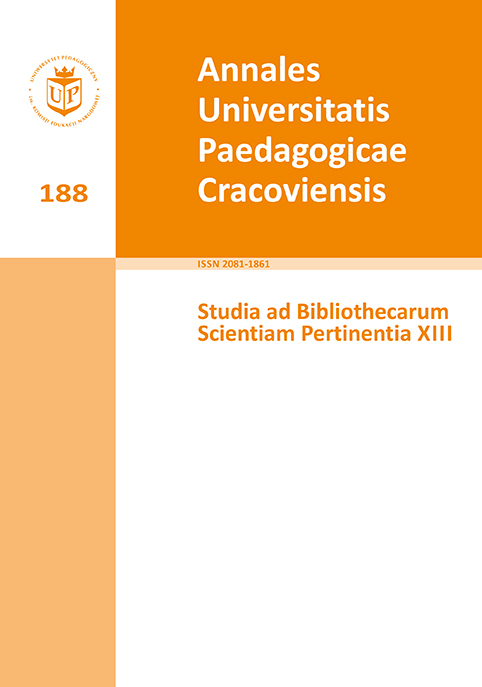
This article presents the children’s magazine „Window to the World. Periodical for children and youth”. It was published in Cracow in the years 1937–1939, and its editor in chief and publisher was Henryka Fromowicz-Stillerowa, and the co-editor was Martha Hirschprung. It describes the most notable people working with the magazine, as well as divisions that were in the newspaper. Attention was drawn to the cause of creating the article and the choice of language. It pointed to the character of the ideological writings – Zionism and the need to create a new model of child recipients. The magazine was formed by adults and children. It published classics of Jewish literature (I.L. Peretz, Ch. N. Bialik), the poetry of the young Jewish writers Anda Eker, Minka Silberman, Maurice Szymel, Martha Hirschprung and children.
More...
Review of: P. Olechowska, Prasa szkolna – teoria, funkcje, tematyka. Analiza na przykładzie województwa zachodniopomorskiego, Wydawnictwo Naukowe Uniwersytetu Szczecińskiego, Szczecin 2015, s. 294, il.
More...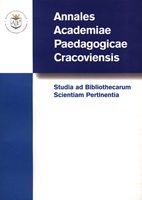
W dniach 15 i 16 października 2012 r. odbyła się w Łodzi Konferencja naukowa „Działalność oficyn wydawniczych na rzecz edukacji, szkolnictwa i oświaty w XIX i XX wieku” zorganizowana przez Katedrę Historii Wychowania i Pedeutologii Wydziału Nauk o Wychowaniu Uniwersytetu Łódzkiego pod patronatem Komitetu Nauk Pedagogicznych PAN oraz Towarzystwa Historii Edukacji. Było to już trzecie spotkanie badaczy zajmujących się problematyką dziejów oświaty i wychowania, prasoznawców oraz bibliologów. Poprzednie dwie konferencje pod wspólnym hasłem „Czasopiśmiennictwo XIX i XX wieku jako źródło do dziejów szkolnictwa, oświaty i edukacji” odbyły się w 2009 i 2011 r
More...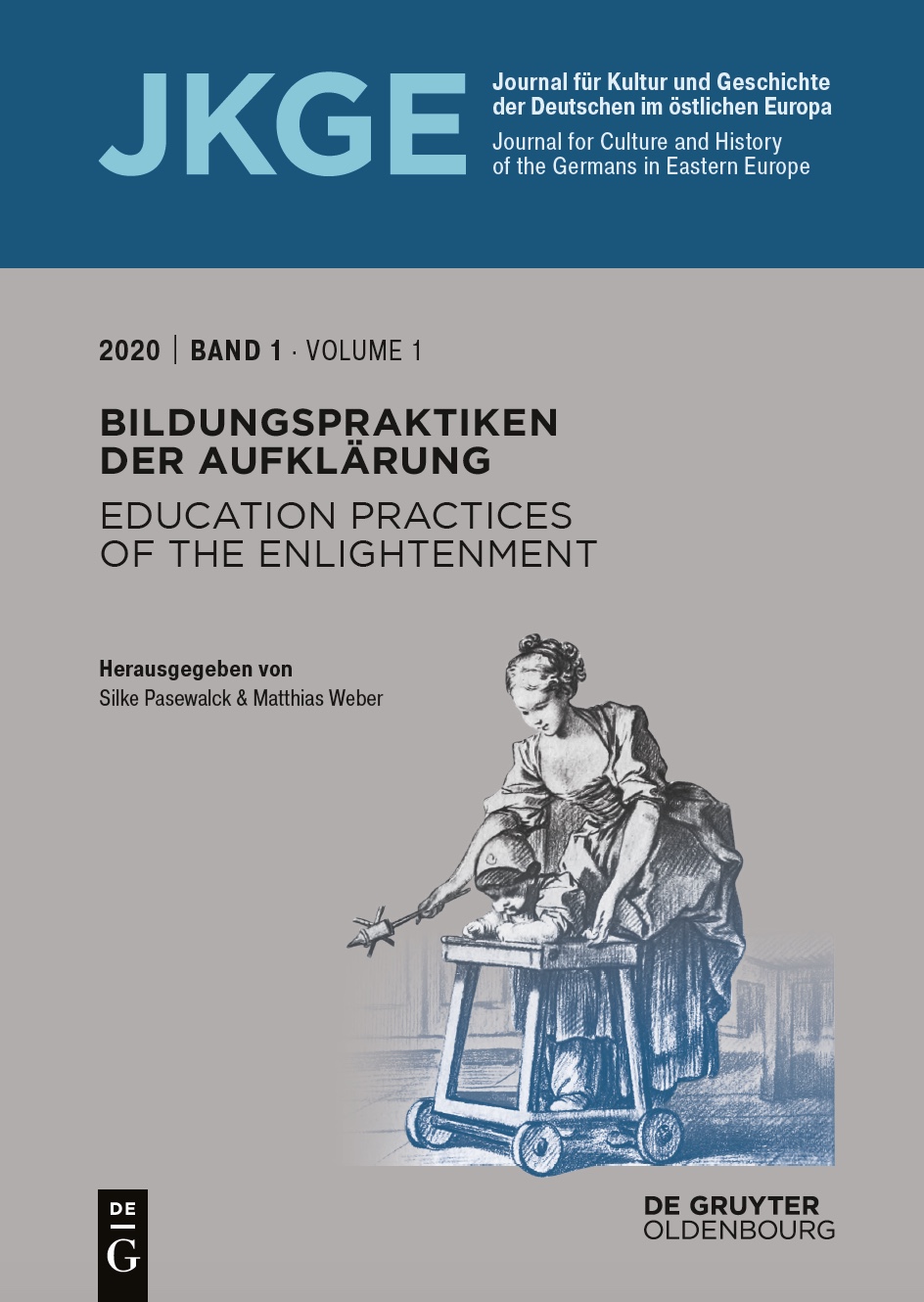
The isolation of Jews in the German states and territories began decreasing in the late eighteenth and early nineteenth centuries. At the same time, Jews started to represent a ‘problem’ for the enlightened concept of a modern society with its uncompromising demand for cultural homogeneity. Philosophers of the Enlightenment, such as Kant, implied that Jewish religious observance stood for a separatist interpretation of religion and wanted to ‘educate’ the Jews to be Germans. This ‘education’ was also promoted by enlightened Jews, such as the Austro-Bohemian educator Naftali Herz Homberg (1749–1841), who was the superintendent of German-Jewish schools of Galicia. In my paper, I analyze Homberg’s magnum opus Bne-Zion which was meant to function as a catechism for the enlightened Jewish youth. The intention of this paper is to add a new sociological perspective to the Homberg bibliography, with an emphasis on intergroup relations between the Jewish minority and the non-Jewish majority. I look into the assimilationist policies of the German Enlightenment and the Austrian Empire, and try to show how these were internalized by Homberg in his work.
More...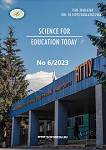
Introduction. The article provides a literature review on the problem of cultural conformity of school participatory budgeting practice in traditional ideas about education in Russia. The purpose of the article is to evaluate the conformity of the ideas of school participatory budgeting with traditional approaches to education formed in the twentieth century (works by S. T. Shatsky, A. S. Makarenko, I. P. Ivanov). Materials and Methods. The research methodology relies on the ‘cultural transfer’ concept which is defined as a study of foreign cultural form (the object of the transfer) and its resonance with traditional cultural norms (address of the transfer). A comparative analysis of significant works by Soviet education scholars and research articles of international and Russian authors devoted to school participatory (initiative) budgeting was used as a procedure for conducting this study. The comparison parameters represent a modification of the components of the school educational system. Results. The conformity of school participatory budgeting with the Soviet tradition of education is revealed through the following main results: 1) the similarity in ideas about the educational ideal is characterized (socially active, proactive citizen-owner, focused on improving the environment, capable of expressing and defending their interests); 2) common features in the positioning of the child-adult community as an economic and self-governing organization have been established; 3) the analogy between ‘social creativity’ and ‘experiments with democracy’ is proposed and justified; 4) partnership in child-adult relationships is presented as a common feature of the compared phenomena; 5) in both cases, the determining role of social technology of interaction between participants in the relationship was revealed. Conclusions. The article draws the following conclusion: school participatory budgeting does not contradict the ideas of authoritative twentieth-century pedagogues about education; moreover, it allows to enrich the Soviet experience with modern solutions that take into account the peculiarities of the market economy.
More...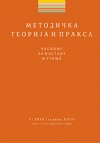
У недељу, 12. новембра 2023. године, у Великој дворани Задужбине Илије М. Коларца, одржан је концерт поводом обележавања 40 година уметничког рада и пијанизма наше уважене колегинице др Радмиле Стојановић. Већ овенчана због истрајног, континуираног рада и позната по бројним и веома запаженим самосталним и камерним концертима од националног и међународног значаја, реализовала је многе уметничке пројекте у циљу промоције и афирмације вредности пијанизма, камерне и уметничке музике националних и европских композитора међу младима и грађанством. Спектакуларни концерт поводом 40 година уметничког рада и пијанизма др Радмиле Стојановић чинио је дела познатих аутора. Са добро осмишљеним и веома захтевним програмом показала је апсолутну преданост уметничким делима – Ј. С. Баха, В. А. Моцарта, С. Прокофјева, Ф. Шопена, В. Миланковић, Д. Јовановић, К. Дебисија и К. Бабића, приказујући изврсну технику, спретност у свим регистрима и темпима, динамичку осетљивост, супериорност у полифоним преплетима и естетичку префињеност.
More...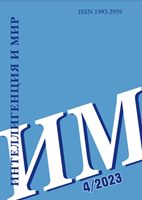
The article, based on the study of archival original documents, examines the activities of Colonel B. N. Sergeevsky on the creation and development of a Russian gymnasium in the Munich-Freimann displaced persons camp in 1945—1947. The main areas of activity of B. N. Sergeevsky, who made important personnel decisions on hiring teachers, developed curricula, created Teachers’ Council — a collegial body for monitoring the educational process and making various methodological and disciplinary decisions, are investigated. The Director paid special attention to the teaching of those disciplines that formed the Russian Orthodox identity. They were Russian literature, Russian history, the Law of God, geography, the Russian language. The applied part of the knowledge included teaching specific labor professions that would be useful to the children of emigrants after their families moved from Germany to other countries of the world. The director of the gymnasium managed to gather in the educational institution a community of Russian intellectuals who prepared children for trials of life in Western countries.
More...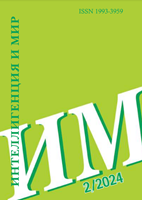
The article examines the role of the intelligentsia in the unfolding of the nationwide crisis in the Russian Empire at the beginning of the XX century. The main features and causes of this crisis are indicated. The necessity to identify the role of the intelligentsia in the split of the Russian society and the rocking of public consciousness is determined. The author applies the following scientific research methods: analysis and synthesis of facts; induction and deduction; system and structural-functional approaches; comparative analysis. The essence, structure and numerical composition of the intelligentsia, its role in the formation of the “new middle class” are discussed. The social situation, activities and socio-political activity of Russian scientists, professors and other teachers of higher and secondary educational institutions, as well as students are considered in detail. The position of the intelligentsia in national and religious issues is analyzed. It is concluded that at the beginning of the XX century the social composition of the Russian intelligentsia was all genealogical and heterogeneous. The political views and economic situation of the intellectuals also differed. The intelligentsia was ideologically differentiated into different political groups, leading a fierce confrontational struggle with each other about choosing the path of social development, about methods of achieving their goals. Lacking a solid social support, the intelligentsia tried to attract to its side both new (workers, employees) and traditional (peasantry, urban philistinism) layers, introducing into their consciousness a multi-vector ideology, various party programs. At the beginning of the twentieth century such a flood of information about the ways and methods of Russia’s transformation poured into the split traditional consciousness that it was unable to not only comprehend it, but also even just to “digest” it. The shake-up of traditional consciousness performed by the intelligentsia in the conditions of confrontation between the government and society turned out to be fraught with powerful political and social cataclysms that brought Russia to the brink of a national catastrophe.
More...